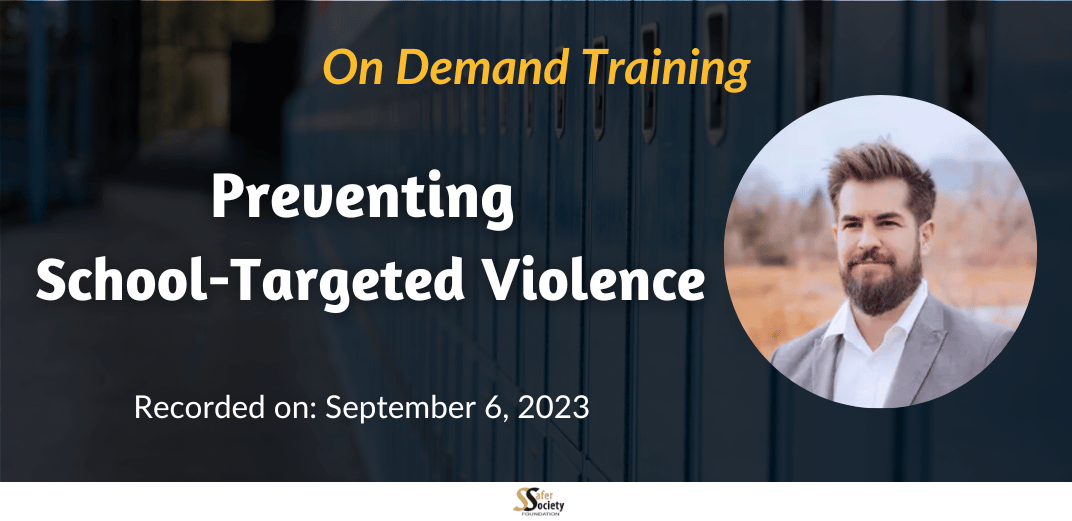
Preventing School-Targeted Violence
Already purchased an On Demand training?
Click here to access your Safer Society On-Demand Training Center account.
The U.S. has witnessed a dramatic increase in premeditated attacks on schools, resulting in immeasurable physical and emotional harm. Consequently, parents, caregivers, teachers, school counselors, therapists, and other stakeholders are grappling with how to prevent such tragedies. Fortunately, 20 years of empirical research show that school attackers do not simply “snap” and that school shootings are preventable.
As mental health professionals, we are uniquely positioned to aid in stopping violence before it happens. The training begins with an introduction to what we know about school-targeted violence. Attendees learn how targeted or planned attacks differ from other violence and about the risk factors and indicators associated with such phenomena. The presentation includes an introduction to behavioral threat assessment and management (BTAM), a research-supported approach for identifying and preventing school threats.
Training topics include:
- What parents, caregivers, teachers, school counselors, therapists, and other stakeholders can do to prevent school-targeted violence
- Risk factors for school-targeted violence
- The behavioral threat assessment and management (BTAM) approach to potential threats
Participants learn to assess potential perpetrators for perceived grievance, violent preoccupation, and weapon access. Lastly, attendees learn how, if at all, mental illness plays a role in targeted school violence.
1) Use research-supported approaches for behavioral threat assessment and management.
2) Analyze the identified risk factors associated with school-targeted violence.
3) Develop and apply strategies to evaluate students’ perceived grievances and their potential impact on violent behavior.
4) Critique prevalent misconceptions surrounding school-targeted violence.
Audience
This training is primarily for mental health professionals, including therapists, counselors, and other professionals who work with students or in school settings.
Content Level
Who's Presenting

Alex Rodrigues, PsyD
Dr. Rodrigues is a forensic psychologist and operates a private consultation practice where he completes a variety of forensic evaluations, including sex offense-related evaluations, competency to stand trial, insanity, and juvenile transfer assessments. Dr. Rodrigues has been qualified as an expert and testified in various jurisdictions. The Colorado Sex Offender Management Board (CSOMB) has recognized Dr. Rodrigues as an approved provider/evaluator for both juvenile and adult populations. Additionally, he is a volunteer participant for CSOMB’s best practice committee, reviewing emerging practices for adoption and implementation. He previously served as a psychologist on a pre-trial unit at St. Elizabeths Hospital in Washington, D.C. as well as a member of the hospital’s forensic consultation service, completing both competency to stand trial and risk assessments. Recently, Dr. Rodrigues opened a satellite office in Colorado to complement his practice in the D.C. metropolitan area. Aside from court-related evaluations, Dr. Rodrigues provides consultation to law enforcement, government agencies, and corporations on mental health/violence related issues in the workspace.
